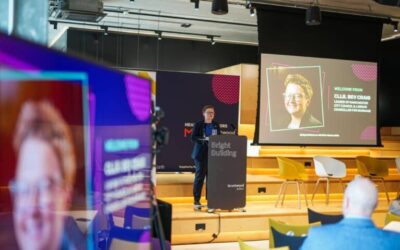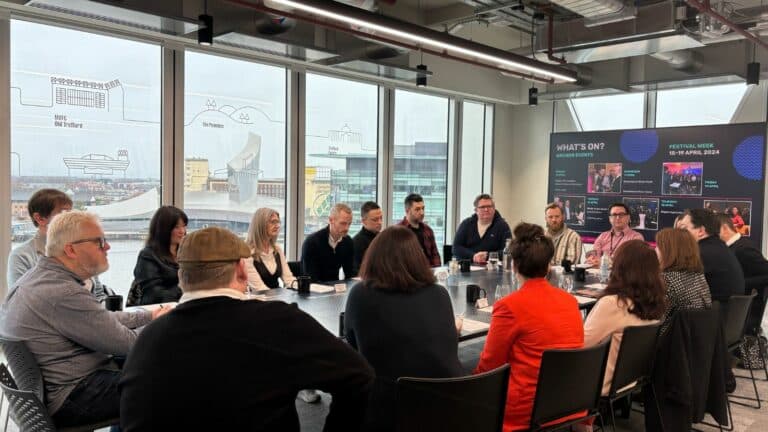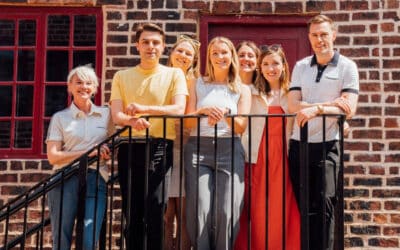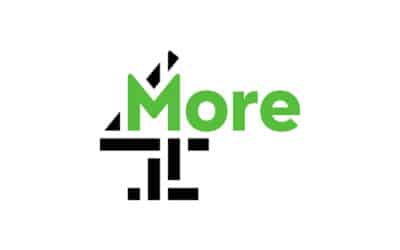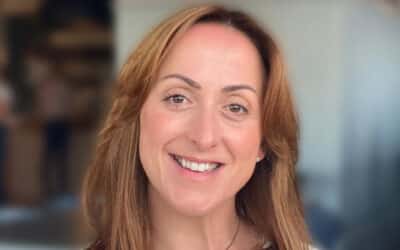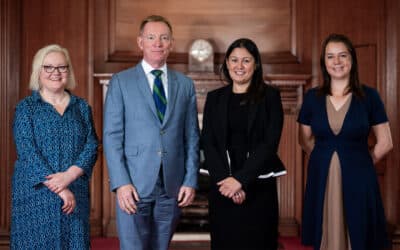Leaders from ITV, Channel 4, the BBC, and more across the North’s broadcast and media sectors, recently came together for a Prolific North roundtable to address the challenges and opportunities for these industries across the region.
Whether it was tackling squeezed budgets, streamers, the sector acting in “silos” across the North, to issues facing freelancers and competing with London, the scale of challenges became evident during a lively morning discussion at Prolific North’s Made in the North roundtable, held at Orange Tower at MediaCity on 8 February.
Attendees also discussed how we can best showcase the talent across the North, and start to pave a way forward to advance and unite the North’s broadcasting and media sectors.
While this review may give an overview of the many talking points emerging from the roundtable discussion, we’re planning to delve deeper into them during a dedicated Made in the North event as part of Digital City Festival on Tuesday 16 April.
To find out more and get involved in the event, please contact Alexandra at alexandra@prolificnorth.co.uk, as Prolific North is keen to advance, and ultimately showcase the talent the North’s broadcast and media sectors has to offer.
Attendees
- Chair: Stephen Chapman, Journalist at Prolific North, Producer and Director at 39 Pictures
- Josie Cahill, Head of partnerships and engagement, BBC Salford
- Constantine Kibaris, Organising official, Bectu
- Kevin Blacoe, Head of partnerships, Channel 4
- Paul Andrew, Head of Post Production, LA Productions
- Matt Brown, Managing Director & Colourist, Core Post
- Andy Waters, Head of Studio, dock10
- Rachel McLean, Director, Liverpool Screen School
- Richard O’Hare, Co-founder & Director of Photography, Orillo Films
- Chris Curley, Head of Nations & Regions, Pact
- Hannah Eakins, CEO, Production Futures
- Mark Collins, Director of Production & Managing Partner, Rabble Post/The Mob Film Co
- Jo Schofield, Senior Talent Executive, Screen Yorkshire
- Annabel Grundy, Managing Director, Sheffield DocFest
- Kirsty Fairclough, Professor of Screen Studies, School of Digital Arts (SODA), MMU
- Rob Page, Director, Space Studios Manchester
- Simon Marsland, Managing Director, Toasted Productions
- Laura Caveney-Morgan, Executive Editor – MultiStory Media, Tonight, ITV Studios
- Christine Pyke, Creative Director of the Pipeline, University of Salford, School of Arts, Media & Creative Technologies
Following introductions, Stephen Chapman (Prolific North) kicked off the discussion by highlighting the rich history of the North’s media and broadcast sectors and asked how this has evolved over the years. Since the first festival launched in 1994, Annabel Grundy said Sheffield DocFest has continued to transform and last year expanded by introducing audio.
Reflecting on how the festival has helped put “Sheffield on the map”, Chapman asked how the perception of the North has changed across the broadcast and media industries over the past 10 to 15 years. Simon Marsland (Toasted Productions) pointed to the importance of dock10’s reputation in MediaCity. Back when the BBC initially set up a base on Manchester’s Oxford Road, it was a “very closed community” but now that seems to have evolved since the move to MediaCity, leading to more opportunities.
When it comes to talent, Hannah Eakins (Production Futures) said the North is attractive thanks to its cheaper prices to not only live, but to set up bases here. For Kirsty Fairclough (SODA), being in Manchester is “seen as the place to be” for both students and international companies.
Although these positives may be great to hear, Andy Waters (dock10) said the focus seems to hone in on the successes across 2010 to 2020 when it comes to MediaCity. Now, rather than consolidating, he believes it’s “started to slide”.
“We don’t speak with a solid voice,” he said. “We really need to start championing this region. We had great success for the first 10 years but it’s definitely slipping away, we need to start joining forces.”
Rob Page (Space Studios Manchester) agreed. “We are in a state of flux,” he explained, pointing to how public sector broadcasters (PSBs) are “struggling”, production budgets are becoming “tighter” all the time, and how streamers such as Netflix, Amazon and Apple don’t have regional quotas unlike PSBs.
Chris Curley (Pact) said other regions north of the border have the benefit of the likes of Creative Scotland with a unified voice, lobbying for change. Whereas across the English regions, there’s “quite a lot of work to do” in terms of how things are decided, made, or funded, which is “really difficult” for Pact members at the moment.
Laura Caveney-Morgan (ITV Studios) said the ability to “fly the flag” for the regions is a struggle in comparison to other locations like Ireland, Scotland or Wales – all locations with the luxury of tax breaks.
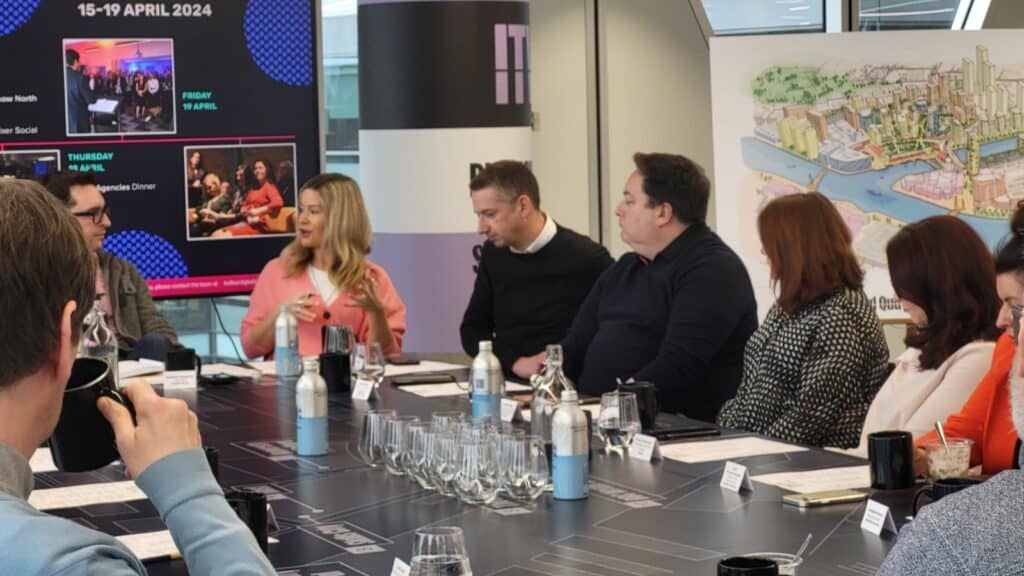
“There’s too much individualism” in the North
With the launch of BFI-backed Screen Alliance North, could this become the unified voice to shout out about what’s happening in the North, asked Chapman (Prolific North).
There is a “real frustration” said Page (Space Studios Manchester). Heavily involved in the launch of Screen Alliance North, the initiative aims to become “one combined voice” representing the future of the North’s TV and film industries. A challenge is competing against the tax relief that other countries such as Ireland benefit from. Streamers often opt for Wales as a location, as the devolved government there offers that extra financial incentive.
The problem now though, according to Waters (dock10), is that the perception seems to be that MediaCity is “fixed”. More production companies and commissioners need to be based in MediaCity. “Something needs to be done, we need to join up,” he emphasised. But how do we showcase that talent in the North and keep it here, asked Chapman (Prolific North).
Mark Collins (Rabble Post/The Mob Film Co) said his company currently works very independently, shooting across the North, bringing in Hollywood stars or directors. A big issue is that the Northern production scene isn’t “joined up” and is lacking an “alliance”.
Matt Brown (Core Post) agreed. “There’s too much individualism up here,” he said. “We don’t work together closely.”
On how the sector can work together to be more sustainable in the North, Jo Schofield (Screen Yorkshire) said there’s a big infrastructure difference. The “corridor of the M62” that drives down the middle of the North of England almost creates a “separate identity”, and has a big impact on talent.
“It’s a very fragmented landscape at the moment and it’s because talent is operating in individual silos. Some of that is down to the basics of infrastructure in the North, and how people can get from one point to the other.”
Josie Cahill (BBC Salford) asked the room if they’d heard of the Northern Creative Corridor charter launched by the RSA (Royal Society of Arts) and its potential to create that joined up approach that the sector desperately needs in the North.
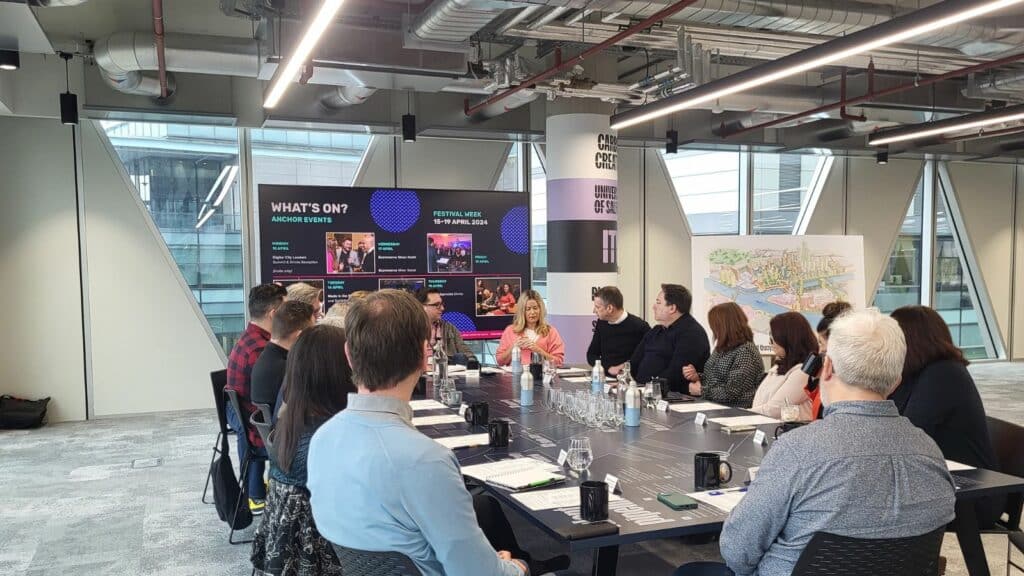
There were mixed opinions from the room. Although the charter may be in its infancy, some leaders might have been to the events, while others hadn’t heard of it.
Curley (Pact) said it’s “incredibly challenging” across the film and TV industry for “lots of different reasons”. That joined up approach could be “much better” across the North, looking at how Creative Wales seems to have created a hub for initiatives and events to bring the sector together.
The point of Screen Alliance North is to “deal with silos”, explained Page (Space Studios Manchester). Operating in silos is “not going to work” for the wider sector.
Post 2020, Liverpool has a bit of a “chip” on its shoulder by having to “fight Manchester” as everyone wants to go there, said Paul Andrew (LA Productions). Football allegiances aside, Waters (Dock10) said the real competition here is London. The focus should be on shifting production out of London, rather than “nicking it off one another”.
Commissioners in the North
Commissioners based in the North was a big talking point during the discussion. Although there may have been one for a while at BBC’s Children’s department, Caveney-Morgan (ITV Studios) said everything has changed now, pointing to the issues with Channel 4 and Steph’s Packed Lunch in Leeds being axed.
“One thing that has never changed is regional commissioners. ITV, is the only one,” she explained. “We don’t have a Manchester-based commissioner for any network.”
That decision-making still comes from London, said Curley (Pact). If those genre-specific commissioners aren’t spending time in the North, they don’t know enough about what’s happening here. And that’s a problem.
Richard O’Hare (Orillo Films) said companies are just facilitating money coming from London and often, the North East is in the “shadows” of Manchester. “That doesn’t create an on-going ecosystem,” he explained. “It’s like foreign money.”
For Cahill (BBC Salford), lots of audio commissioning comes out of Salford with 5Live based out of MediaCity as an example. There has been a “seismic shift” in how things have evolved over the years and post pandemic, but there is an opportunity to look at how the industry does “go forward”.
There’s no question it has evolved, said Waters (Dock10) but it has started to slide post 2020. “Have we lost the voice from the BBC?” he asked, “We’ve seen that voice of the North diminish and the less we start shouting about it, if we all just go ‘yeah, everything’s great’ – nothing’s going to change.”
Talent and a unified voice
Is there a narrative and storytelling issue asked Cahill (BBC Salford), and should the North unite and come together to do tackle these issues?
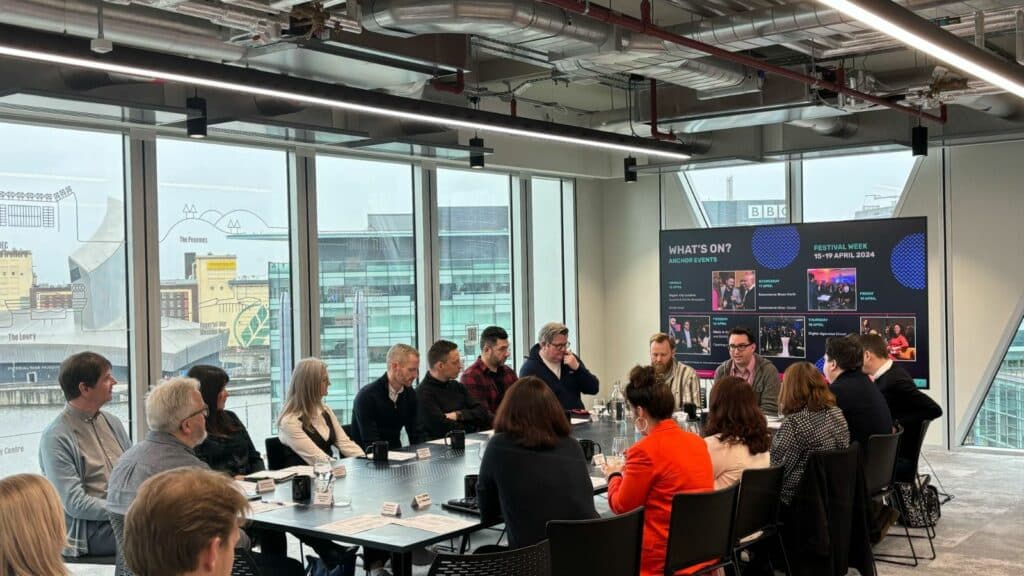
Eakins (Production Futures) said if the sector is not working together and collaborating, it’s not attracting young people. “We’re all doing our own thing but actually, collaboration is key,” she said, whether that’s in the form of tackling the skills shortage or looking at transferable skills.
There are hundreds of applications from new graduates locally, said Grundy (DocFest). For other roles at Sheffield DocFest they hire from across the UK and internationally, and although hiring internationally isn’t a negative, it does highlight a lack of opportunity close to home.
There seems to be a progression hurdle for talent to overcome, added Rachel McLean (Liverpool Screen School). Curley (Pact) highlighted that these challenges were being spoken about in general terms. Each genre has its differing challenges, but they are all “fixable”.
Offering talent jobs is a big challenge, said Caveney-Morgan (ITV Studios). There’s “nowhere for them to go” after six weeks or six months working in production. “If only I could keep hold of talented people. There isn’t the work, so this is the issue”.
It’s an unscripted factual problem, emphasised Curley (Pact). The “Covid boom was a red herring” but now there’s re calibration across the industry, combined with the ad fund slowdown and what audiences want to watch,
“We’re finding it is a challenge because of the competition of eyeballs. We need one voice to address all these individual problems, which are part of a bigger problem, and be joined up.”
With Channel 4 embracing digital, it leaves room to experiment more when it comes to supporting and nurturing talent, said Kevin Blacoe (Channel 4). Prior to Channel 4 opening its HQ in Leeds, there were no commissioners based in the North but that’s now changed. Without those commissioners building relationships with local indies, producers and companies, it poses a challenge. There now needs to be more on the ground relationships.
Streamers and the future
Streamers coming to the region have been a “big win” for Space Studios, said Page. Backed by bigger budgets creating bigger shows, it creates a bigger economic impact and opportunities for people to come into the sector, and “grow” their careers.
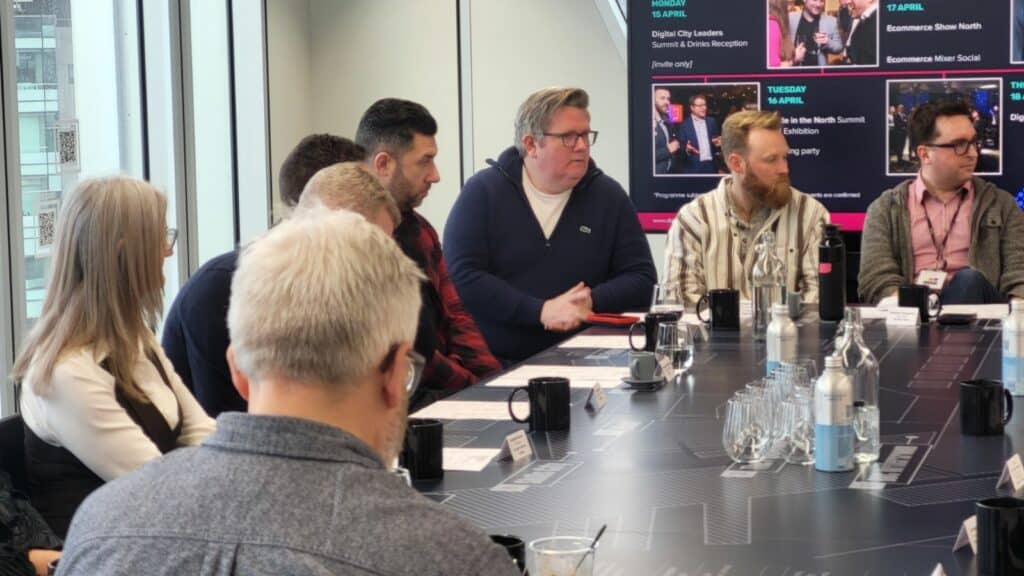
Streamers are a “really important part” of this ecosystem, he emphasised. But according to Waters (Dock10), pressure isn’t put on steamers in the same way as PSBs. ”Why doesn’t Ofcom start pushing some quotas onto the streamers? They are enjoying tax breaks but I don’t see it being reinforced to be spent in regions and nations.”
Although there has been an “explosion” in streamers wanting to use Northern facilities, leading to more skills being developed, the North would majorly benefit from tax breaks seen across Scotland, Wales and Ireland.
Schofield (Screen Yorkshire) agreed with the “frustration” around streamers. Although talent schemes from streamers may receive lots of publicity, they often offer only a “small amount of talent development” regionally. For diverse talent to flourish, more productions need to be retained outside of London. The volume “needs to be turned up” and is a joint responsibility of both PSBs and steamers to collectively work together.
There needs to be “one voice” across the North, to collectively tell the story about what’s happening in the broadcast and media industries across the regions, said Caveney-Morgan (ITV Studios). She asked “how do we sell ourselves better?”
Screen Alliance North could be the key, said Page (Space Studios Manchester). It initially emerged following a “common frustration” with the way national bodies delivered screen skills in the North. With its own crew and facilities database, it is “better placed” to illustrate these initiatives. But, for far too long, regions in the North have been competing. Now it should be about regions combining to get a “bigger slice of the pie”.
The North is the key word, said Andrew (LA Productions). If places like Yorkshire, Greater Manchester Merseyside, and Cheshire were all “one voice” it would have a greater impact nationally. The UK’s television industry is seen as prestigious, so people don’t care what your background is.
Grundy (Sheffield DocFest) said despite having a dynamic and international story, the festival is viewed as a regional event in the UK whereas globally, Sheffield DocFest is one of the top five markets.
Scripted content has benefited hugely over decades because of tax breaks, added Waters (Dock10). But “we’re missing a trick in unscripted,” he said. Fox is plunging huge amounts of unscripted work into Dublin as it has unscripted tax breaks and it almost feels as if the North has to “compete”. Resources, skills and opportunities in unscripted in the North could be unlocked, and more game shows could be delivered if there were the same tax breaks here.
There’s no joined up thinking and no consistency in the North, said Collins (Rabble Post/The Mob Film Co). Recently completing a viral programme on Tyson Fury, shot at Space Studios, he said his company doesn’t “shout about it” as it doesn’t have the budget or marketing departments to create that visibility which is a “huge problem”.
Constantine Kibaris (Bectu) said there was a feeling from productions that there wasn’t the talent up here, Although there’s been a “really big shift” over the past 10 years, there’s more work to be done. One of the biggest challenges facing freelancers is the “consistency” of work with recent research finding many are living month to month when there’s a slowdown in the industry. Although a lot of work has been done to build up skills, which is why streamers are coming here: “people are thinking about leaving the industry”.
“Even if you’ve got facilities,companies and infrastructure, we need those skills and to retain talent.”
Although there seems to be lots of databases and resources, they are not “unified”, said Brown (Core Post). Schofield (Screen Yorkshire) added there’s a silo effect and an opportunity to shout about each region’s resources and pull it together as “one Northern resource”. It’s “damaging” for these industries by not working together, added Brown (Core Post). The room agreed the broadcast and media sectors in the North need to find a solution now to unify and shout about what they do.
We’ll be exploring some of these key topics in more detail at Digital City Festival’s dedicated event for the broadcast and media industries – Made in the North. Get in touch via alexandra@prolificnorth.co.uk if you’d like to take part.


